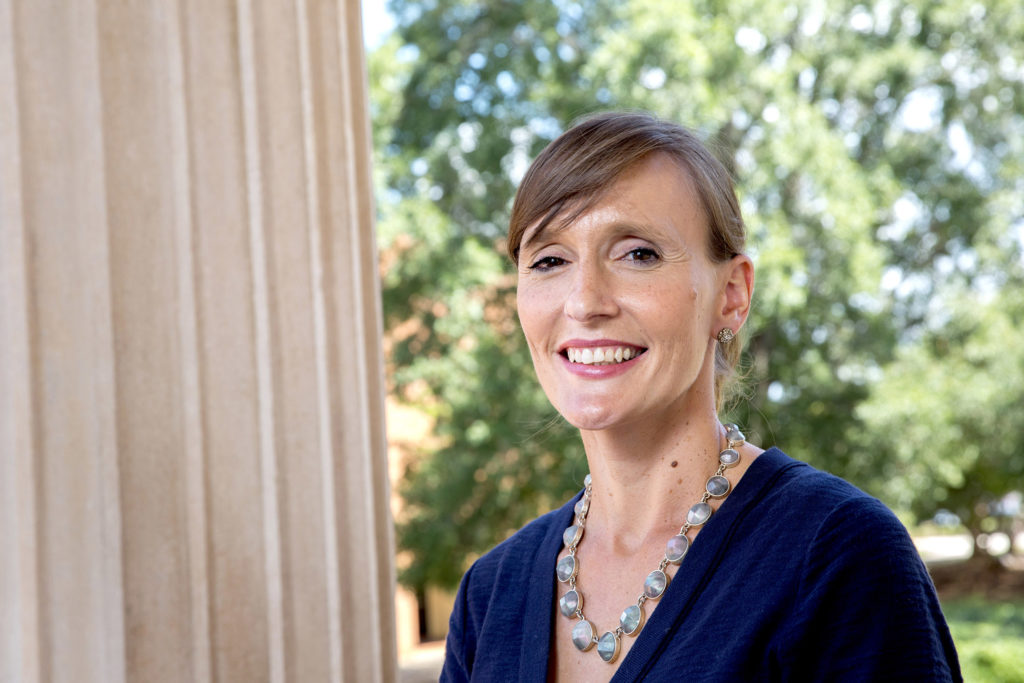UGA has created new learning opportunities for students and laid the groundwork for critical research advances through an initiative that has resulted in 12 interdisciplinary faculty hires to date, with more on the way.
Launched in 2013, the Presidential Interdisciplinary Hiring Initiative has created new faculty positions in mobile health computing technology, poultry health and production, biological imaging and brain mapping, digital humanities, housing for older adults and several other areas. UGA actively is recruiting for four additional positions to bring the total number of new interdisciplinary hires to 16.
“The challenges facing our state and the world are becoming increasingly more complex,” said UGA President Jere W. Morehead. “It is the role of the University of Georgia, as a leading research university, to respond to these challenges with innovative solutions. The faculty members hired through this initiative are positioned to build partnerships across traditional disciplinary lines to tackle society’s most pressing issues.”
“Our new interdisciplinary faculty hires will play an important role in enhancing the impact of the university’s research and service, and they will provide our students with exciting new learning opportunities,” said Provost Pamela Whitten, who holds joint appointments in three departments in three different colleges at UGA.
Whitten noted that the university’s growing complement of faculty who are at the forefront of research both within and across disciplines enables the institution to more effectively address large-scale challenges that require multifaceted solutions. The new interdisciplinary hires enhance the university’s ability to attract grant funding, as federal and private funding agencies increasingly have emphasized the value of interdisciplinary research in recent years. And the range of perspectives that interdisciplinary faculty provide also helps prepare students for success.
Melissa Hallow, an assistant professor with a dual appointment in the College of Engineering and the College of Public Health, is one of the 12 new faculty hired through the initiative. She creates computer models that predict how diseases such as diabetes will respond to drug therapies and will teach engineering courses as well as public health courses in chronic disease epidemiology and clinical trail design.
Over the long term, she hopes to develop new courses based on her expertise in pharmacometrics-the study of variation in how individuals respond to drugs and other compounds-and possibly a certificate program that would give students knowledge and experiences that are in high demand in the pharmaceutical industry as well as in public health.
“UGA has a very diverse set of resources to draw from,” Hallow said.
Like Hallow, Brian Jordan sees his work as an opportunity to create synergies between fields.
Jordan holds a joint appointment in the College of Agricultural and Environmental Sciences and the College of Veterinary Medicine, and he said that his interdisciplinary position enables him to bridge the gap between two very important aspects of poultry health-disease and management-that are often viewed separately.
“I will be able to investigate how factors in both areas affect each other,” Jordan said, “leading to a more comprehensive understanding of poultry health.”
Additional faculty hires to date through the Presidential Interdisciplinary Hiring Initiative are:
• Dalia Abbas, sustainability science and renewable energy, Warnell School of Forestry and Natural Resources and Savannah River Ecology Lab.
• Jill Anderson, molecular ecology and global change, Odum School of Ecology and genetics department, Franklin College of Arts and Sciences.
• Suzanne Birch, paleoenvironmental reconstruction, anthropology and geography, departments, Franklin College.
• Heidi Ewen, housing for older adults, Institute of Gerontology, College of Public Health, and housing and consumer sciences department, College of Family and Consumer Sciences.
• Courtney Murdock, emerging infectious diseases and vector ecology, pathology department, College of Veterinary Medicine and Odum School.
• Scott Nesbit, digital humanities, College of Environment and Design and history department, Franklin College.
• Peter O’Connell, classical rhetoric, classics and communication studies departments, Franklin College.
• Shannon Quinn, biological imaging and brain mapping, computer science and cellular biology departments, Franklin College.
• Elisabeth Sattler, multidisciplinary education, clinical and administrative pharmacy department, College of Pharmacy, and foods and nutrition, FACS.
• Laura Zimmermann, international political economy, economics department, Terry College of Business, and international affairs, School of Public and International Affairs.
